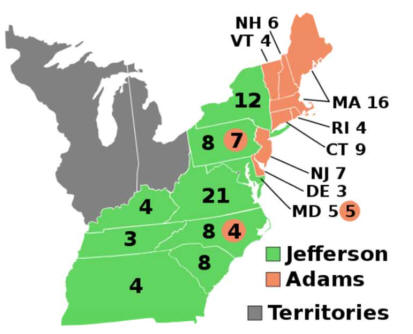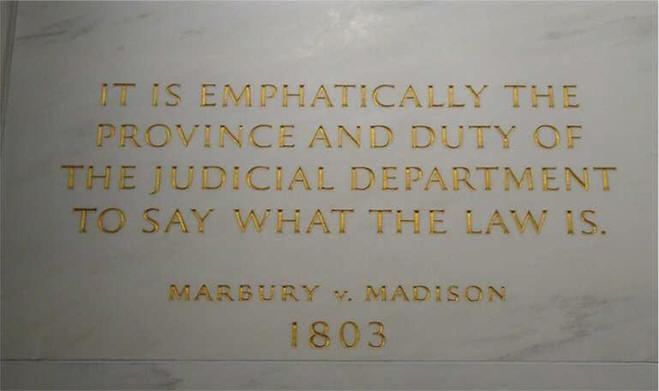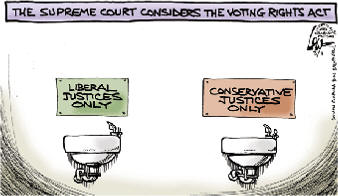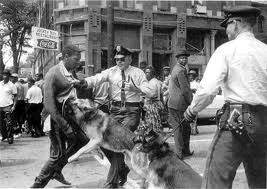|
23.
Who
Protects the Unalienable 1866 Rights of Whom?
Equal rights for all was limited to very few people
at the time of our founding fathers. Women, slaves, Indians and poor men
need not apply. Radicals of the early 1830's associated with abolition
wanted much more than freeing slaves. Everyone they insisted were
entitled to civil rights.
The Civil War had freed the slaves but what would be
their status. Would
freedman have civil, social, political and economic rights or would
they have a serf-like status. Many people at that time did not have
these rights. Also, what would happen to the southern states and their leaders. In the beginning of reconstruction southern President
Johnson wanted the states back quickly so he let them back in 1865 when Congress
was not in session. He also wanted no civil rights for freedman. Radical
Republicans were not happy with what they observed after the war. The
leaders of the South had quickly regained political power, much violence
was perpetrated against former slaves, and
Black Codes laws
limiting rights were passed. Congress returned and passed the first
civil rights laws defining what for first time a citizen and
their rights. This negating the
Dred Scott
vs. Sanford decision by the Supreme Court that stated blacks were
not and cold not be citizens. President Johnson vetoed it but Congresses
overrode his veto.
But soon many felt
more was needed after the
Memphis
race riot of 1866
killed 46 blacks. Many were Civil War veterans. Local government
did nothing. This riot convinced many an Amendment to the
constitution was required to make change permanent and enforceable.
The
14th amendment passed Congress in June 1866
declared all persons born or naturalized in the U.S. were citizens. It also
declared all citizens were entitled to equal protection under the law,
states that denied voting rights to any adult male would have their
congressional representation reduced and finally to run for office
former confederate office holders needed to be pardoned by an act of
Congress. It expanded "We the people..." and charged Congress with
enforcement. President Johnson went on a speaking tour to try and stop
ratification but it was completed in 1868.
|

Anti-black activities by organizations like the
Ku Klux Klan
soon began in most of the south. New president Grant enforced the new
amendment. By
1871 the federal government had subdued much of the violence. Blacks participated in and to
some degree were integrated into society. Click on picture of
Freedmen voting in 1867 New Orleans.
But a counter revolution had started.
Redeemer governments took over the South and went on a publicity
campaign to convince northerners that blacks were being treated fairly.
Eventually federal enforcement waned and after 1873 few
people were
involved in enforcing the civil rights. Then the Supreme Court
started taking a very narrow interpretation of the Constitution in
relation to civil rights. The court negated that equal rights applied to
race. Then they determined it did not apply to segregation in interstate
commerce, private organizations like hotels, clubs, rail road cars ...
and that separate but equal was legal.

Then in 1886 the rights of citizens were established for
corporations. They were collection of people and while this
interpretation simplified the legal system it also made it impossible to
regulate corporation. Thus the 14th Amendment was an asset to big
business but not to minorities.
In this map R= segregation required, Y no law, B optional/limited and G
illegal,
|

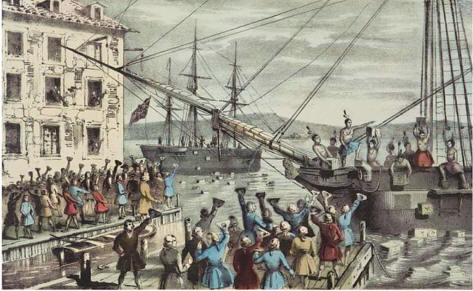 A Radicals within the Sons of Liberty held what
many years later would become known as the
A Radicals within the Sons of Liberty held what
many years later would become known as the
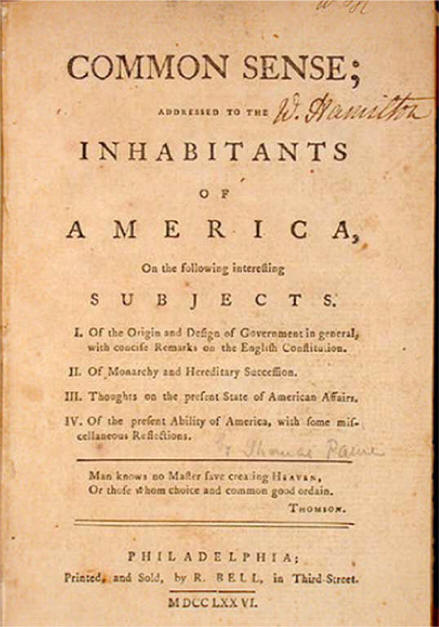


 rotten constitution. France was
writing her first constitution and she is now on her
seventeenth and counting.
rotten constitution. France was
writing her first constitution and she is now on her
seventeenth and counting.
